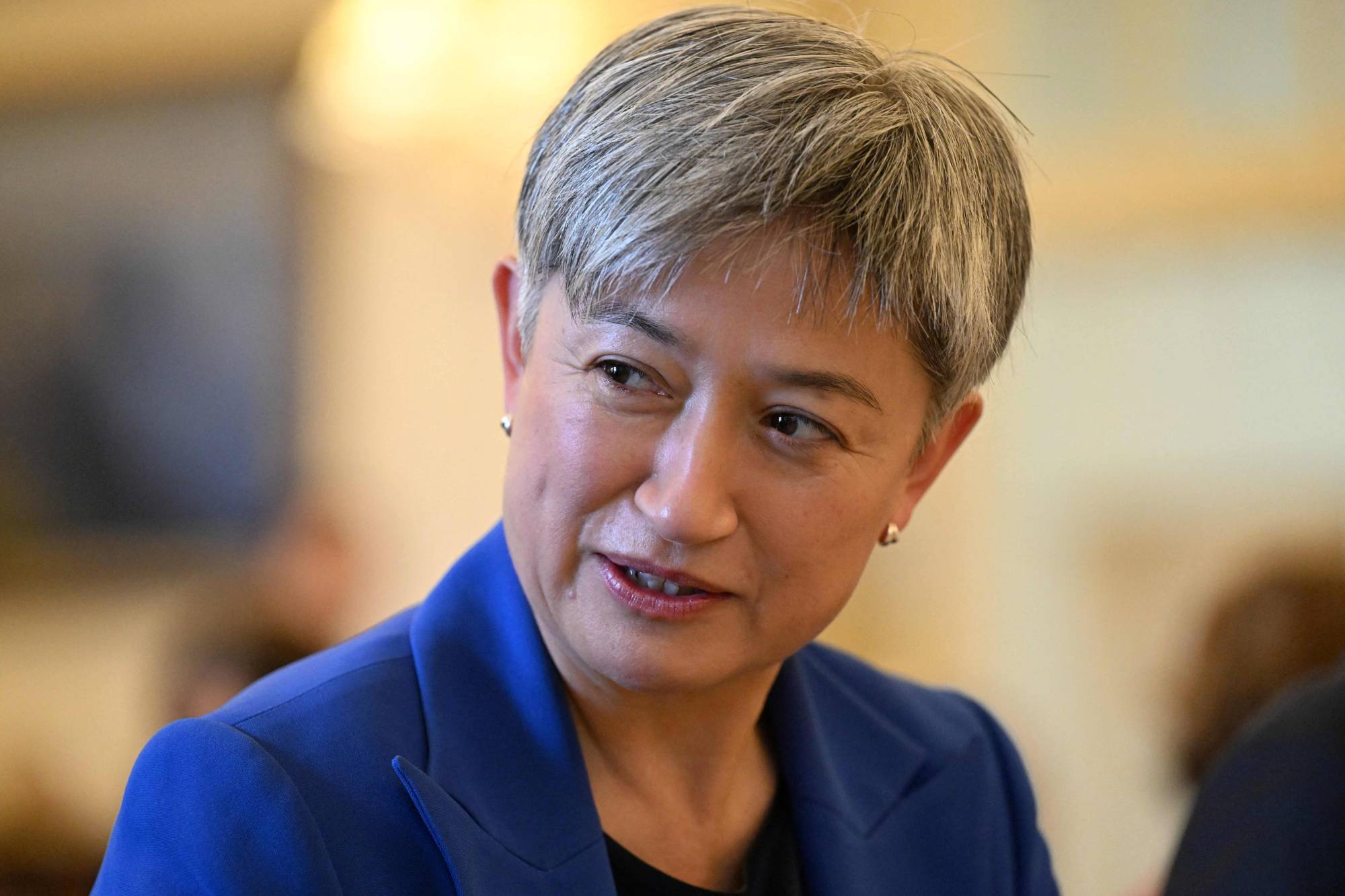Malaysia’s foreign minister, Saifuddin Abdullah, has said that his country’s concerns about the Aukus nuclear submarine pact remain unchanged after a meeting in Kuala Lumpur on Tuesday with his Australian counterpart, Penny Wong.
Saifuddin told reporters he communicated Malaysia’s ongoing concern about the security deal between Australia, the UK, and the US during a “very candid” discussion with Wong on her first visit to the Malaysian capital as Australia’s foreign minister.
Regional objections to Australia’s planned acquisition of nuclear-propelled submarines surfaced almost immediately after Aukus was unveiled by Joe Biden, Boris Johnson, and Scott Morrison.

Saifuddin and Indonesia’s foreign minister, Retno Marsudi, pointed to the risk of a regional arms race during increasing tensions in the East and South China Seas. Last November, the Morrison government deployed then-foreign minister Marise Payne to Malaysia, Vietnam, and Indonesia to smooth over tensions.
Since being sworn in just over a month ago, Wong has embarked on a diplomatic offensive in the region to reset relationships disturbed by Aukus and to counter increasingly assertive regional outreach by China in the Pacific.
Asked on Tuesday whether or not his negative view of Aukus had eased since the unveiling of the pact last September, Malaysia’s foreign minister said: “Malaysia highly values regional peace and security of the Asian region.”
“We want to maintain the South China Sea in particular and the region as a whole as a region of peace, commerce, and prosperity.
“We had a very candid discussion on Aukus just now, and I thank [Australia’s] foreign minister for explaining the government’s position. Malaysia’s position remains the same. I have mentioned that to the foreign minister.”
Wong said she appreciated the opportunity “to explain how we see Aukus to [Saifuddin] and to other counterparts in the visits I have made before this visit, which is obviously to Vietnam and Jakarta”.
In early June, Wong traveled to Jakarta with Australia’s prime minister, Anthony Albanese, meeting her Indonesian counterpart during the visit. She also visited Vietnam before arriving in Malaysia for Tuesday’s meeting with Saifuddin.
“It is important that we listen to concerns; we respond to them respectfully,” Wong said in Kuala Lumpur.
“That’s how the new government will seek to deal with some of the issues that have been raised, and we hope that over time, people’s concerns will be able to be allayed.”
Wong said Labor had decided to support the Aukus pact while in opposition, and she said Australia had no nuclear ambitions.
“We are not a nuclear power,” she said. “There are nuclear powers in this region, but Australia is not one of them.”
“What we are doing is replacing an existing capability with a new capability, nuclear-propelled submarines. We remain very clear that we do not seek and nor would we ever seek to have any nuclear capability on our submarines.”
In an implicit reference to China’s growing assertiveness, Wong said Australia understood the region was being “reshaped economically and strategically,” and countries in the area, including Malaysia and others in south-east Asia, were attempting to “navigate this period of change”.
She said Australia’s objective was not to meet aggression with aggression but to bolster the rules-based order.
“Australia will always operate on the basis that we have this objective: a region that is peaceful, a region that is stable, a region that is prosperous, a region in which sovereignty is respected, and importantly, a region where rules enable some predictability to state behavior and how disputes are dealt with,” Wong said.
Sign up to receive the top stories from Guardian Australia every morning
Tuesday’s meeting was cordial, apart from the pre-existing differences on Aukus, and the two foreign ministers pledged to work together to bolster trade and bilateral cooperation on cybersecurity.
While Wong is in Asia, Albanese has begun a series of meetings with foreign counterparts in Madrid as part of the Nato summit. The focus in Europe is on rising Russian aggression. Still, Australia, New Zealand, Japan, and Korea have been invited to Madrid as part of efforts to build an Indo-Pacific focus.
As Wong attempts to reset relationships in the region, Albanese will travel to France after Madrid to execute a rapprochement with Emmanuel Macron. Ahead of the visit, the Australian government agreed to pay €550m (A$830m) in a settlement with Naval Group over the former Morrison government’s controversial decision to ditch the French attack class submarine project when it signed the Aukus pact.











